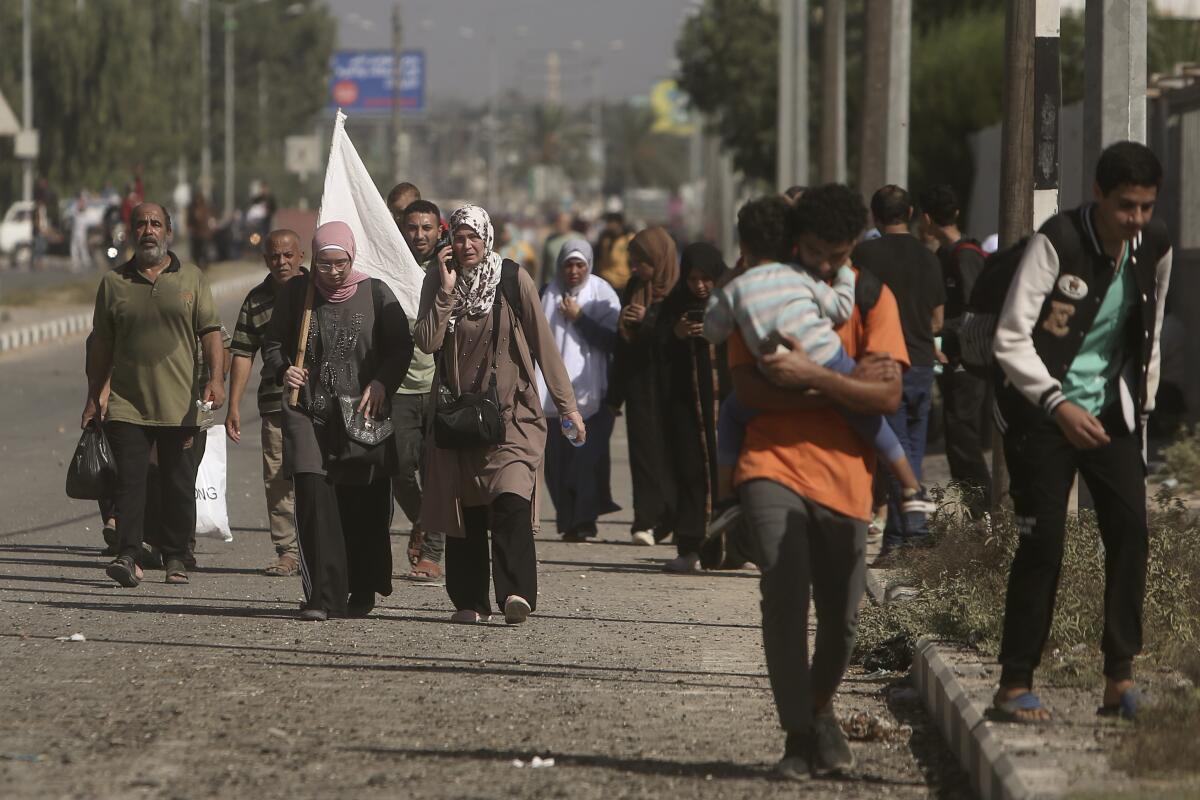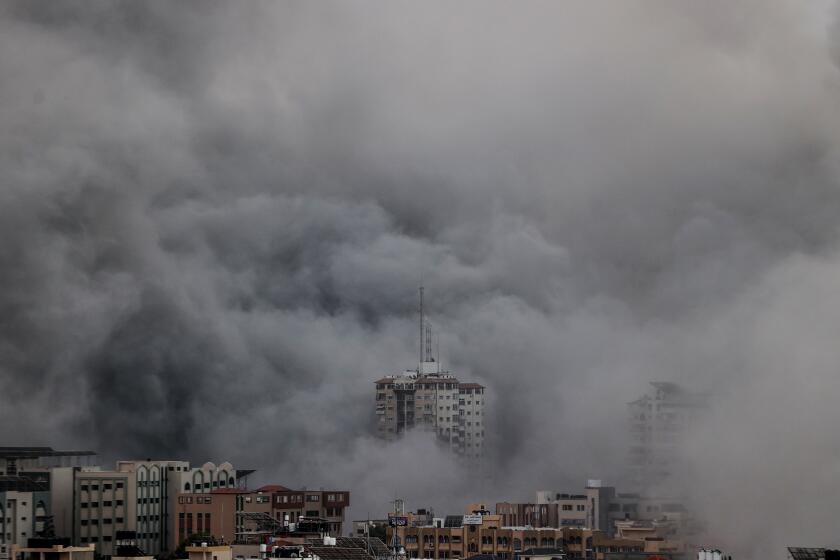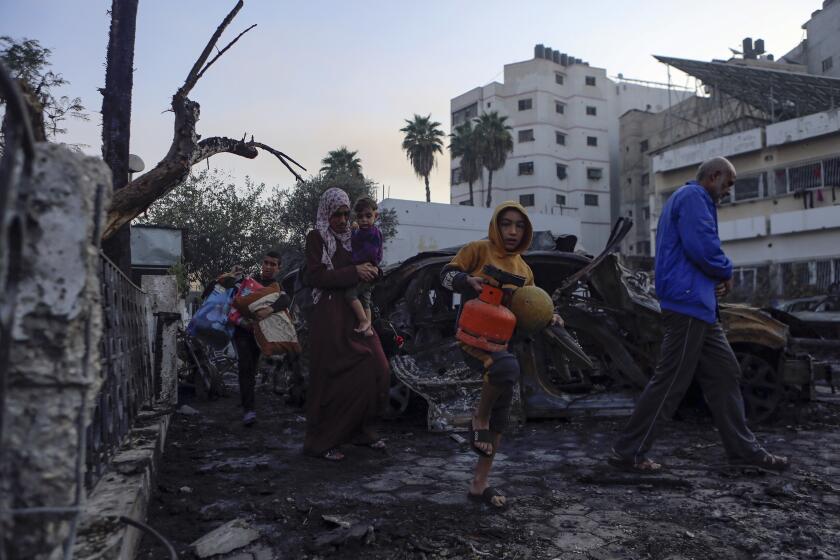Editorial: It’s time for a humanitarian pause to the violence in Gaza

It has been more than a month since the attack on Israel that killed about 1,200 people, according to Israeli officials. In responding to that atrocity, Israel has relentlessly bombarded Gaza and launched a ground operation with the objectives of destroying Hamas and rescuing hostages. The result has been a humanitarian catastrophe with more than 10,000 people in Gaza killed, according to the Hamas-run Health Ministry, and massive displacement and destruction.
It is time that Israel heeded calls from the United States and other nations for a humanitarian pause in its attacks to allow for expanded efforts to relieve some of the misery. There are signs that some respite may be in the works, but pauses in violence need to be long and frequent enough to deliver meaningful assistance to civilians in Gaza.
The Palestinian coders and techies I worked with built bridges to Silicon Valley. Amid Israel’s bombing, their vision of a new future for Gaza is crushed.
On Thursday, President Biden confirmed that he had asked for a pause in Israeli attacks, one that would last “a lot more than three days.” Biden’s comment came a day after diplomats at a Group of 7 meeting in Tokyo issued a statement — crafted in part by Secretary of State Antony J. Blinken — calling for “humanitarian pauses and corridors to facilitate urgently needed assistance, civilian movement and the release of hostages.” The statement called on all parties to the conflict to allow “unimpeded humanitarian support for civilians, including food, water, medical care, fuel and shelter, and access for humanitarian workers.”
Congress also is getting involved. On Wednesday, 24 Democratic U.S. senators, including California’s Laphonza Butler, and two independents, Angus King of Maine and Bernie Sanders of Vermont, who caucus with the Democrats, sent a letter to Biden. Even as the senators expressed support for new aid to Israel to help it replenish its defenses, they asked for “information relative to these two clear U.S. priorities: supporting an Israeli strategy that will effectively degrade and defeat the threat from Hamas and taking all possible measures to protect civilians in Gaza.”
This is the right approach for the U.S. in the the Israeli-Hamas conflict — offering diplomatic support and humanitarian aid.
The letter also asked Biden to “inform us about what specific mechanisms you are putting in place to ensure that Israeli military operations conducted inside Gaza are carried out in accordance with international humanitarian law and to ensure that any U.S.-provided equipment is used in a manner consistent with U.S. law.”
These are legitimate questions, and Biden should respond to them. But the immediate priority is to address the dire civilian toll of this conflict. Israeli Prime Minister Benjamin Netanyahu said on Monday that Israel might be open to “little pauses” in its campaign against Hamas. On Thursday, the White House indicated that Israel would engage in daily four-hour pauses of military operations in parts of northern Gaza.
There are also reports that a three-day “humanitarian pause” might be part of an agreement for the release of some hostages held by Hamas. Progress on hostage release would be welcome, but it shouldn’t be a precondition for a meaningful humanitarian pause. Civilians in Gaza are suffering, and they need a lifeline.
More to Read
Updates
2:19 p.m. Nov. 10, 2023: This story has been updated with the most recent death toll in the Oct. 7 attack.
A cure for the common opinion
Get thought-provoking perspectives with our weekly newsletter.
You may occasionally receive promotional content from the Los Angeles Times.












